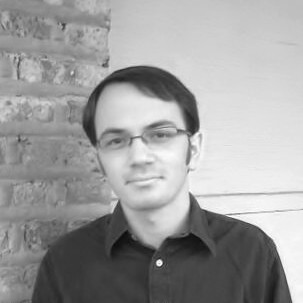David Cantor-Echols

Class Year:
2007
Job Title:
PhD Candidate in History, The University of Chicago
Areas of Study:
History
When you arrived at Lake Forest College, did you know you wanted to major in history?
I have always loved history, so looking back it was perhaps only a matter of time before I officially committed to majoring in it in college. But like many first-years, I hadn’t given a great deal of thought to formally choosing a major when I arrived on campus.
If you did not originally intend to major in history, what changed your mind?
Fortunately for me, the breadth of the History Department’s offering immediately spoke to my existing interests while also pointing me in the direction of periods and subjects (namely medieval European history) about which I knew relatively little.
What was your area of focus in history?
I mostly took courses on European history, with an emphasis on the Middle Ages.
Was there a particular piece of work that you remember as especially rewarding or challenging?
Dan LeMahieu’s courses on Modern Europe and on representations of history in film were instrumental in shaping my understanding of the ways we talk about the past in the present. Taking “Theory and Methods” with David Spadafora taught me about the particular challenges and opportunities afforded by historical research as well as the various schools of thought which have shaped the discipline. Anna Trumbore Jones’s courses on Rome, Late Antiquity, and medieval Europe opened my eyes to a pre-modern world that was largely unknown to me. Her knowledge, guidance, and enthusiasm sparked my own interest in medieval history and are directly responsible for my decision to pursue graduate study in the field.
My senior thesis dealt with the French king Louis VI’s efforts to consolidate political power in northern France at the turn of the twelfth century as well as the manner in which his biographer Abbot Sugur of St. Denis, recorded the king’s deeds. Writing a senior thesis was an important (if daunting) step in both my intellectual and professional development. I was fortunate to find a wonderful mentor in Anna Trumbore Jones early in my undergraduate career, and my eventual thesis topic grew out of a paper I wrote for her course on late antique and medieval religion (the Department’s small size makes it easy for majors to find a mentor and select a topic). I had never written a paper as extensive as the thesis, so my frequent meetings with Professor Jones throughout my senior year were crucial to helping me work through the sources (both primary and secondary literature), develop an argument, and refine my prose. Learning to effectively contextualize my subject and articulate my claims, both on the page and in conversation, proved to be an invaluable experience for me. In part, writing a thesis was beneficial because it required that I produce work on a much larger scale than I had done previously. But beyond that, I now realize that the process of researching a topic and developing an argument in this way taught me how to truly think like a historian.
How did your history major prepare you for advanced studies?
Here again, writing a senior thesis was key. While I had written medium-length term papers prior to working on my thesis, the project itself presented me with the opportunity to produce the type of polished writing sample best suited to accompany a graduate school application. My research for the thesis likewise helped me identify my core research interests, ultimately making my applications’ statement of purpose more focused than it would have been otherwise. Additionally, the Department’s (and the College’s) emphasis on careful reading, vibrant class discussion, and clarity in written work provided me with an excellent foundation for further study. I’m currently enrolled in the History PhD program at the University of Chicago, where I find that the training I received as an undergraduate still informs my work on a constant basis.
Many of our students worry that traditional liberal arts majors (particularly in the humanities) will not translate to job skills. Share your advice.
A history major may not seem broadly marketable at first glance, but it has been my experience that many employers are most interested in hiring applicants who can carefully analyze complex information and effectively communicate ideas in writing. One might argue (even if it’s a bit reductive to do so) that this is essentially what one learns to do as a History major. Strong critical thinking and communication skills are always going to be in high demand, and history majors are especially well positioned in this area. In my case, a stint in publishing after I graduated gave me the opportunity to apply some of the skills I learned as a History major.
Is there anything else you would like to add?
Just that I hope more first-years and upper classmen alike will strongly consider taking some courses in the History Department!

